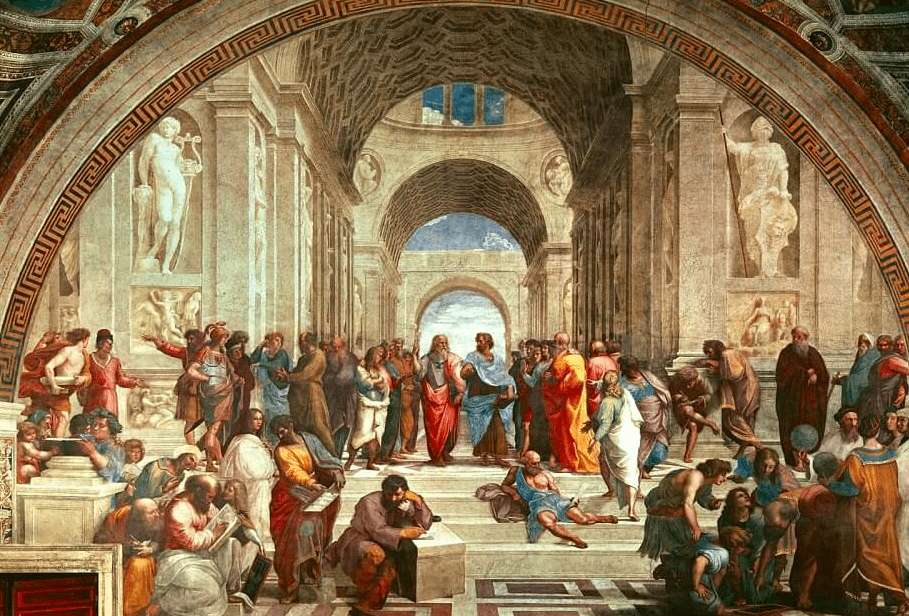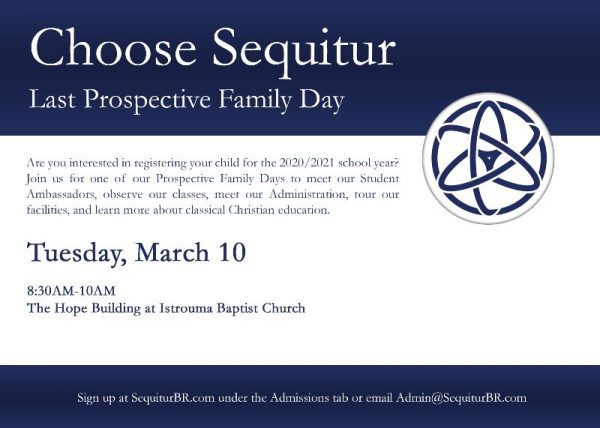The Gift Of Classical Christian Education

Surprised and delighted to see this essay extolling classical education appearing in the Jesuit magazine America. Why surprised? Because classical education has been associated with conservative Christians, especially conservative Protestants. Matthew D. Walz doesn’t mention that — wisely — but makes a case that the Catholic Church ought to be at the forefront of the classical education revival, instead of bringing up the rear. Excerpts:
During each of the past two summers, I have conducted a daylong seminar with administrators and teachers of a Catholic parish school who are adopting a classical curriculum and culture. And last summer I helped run a weeklong seminar with teachers from various schools in a Catholic diocese whose bishop is aiming to infuse his schools with a more classical character. Courage and joy permeated these seminars—courage to “think outside the box,” to cut against the grain of the ruling conventions regarding elementary and high school education; and joy that arises spontaneously when teachers realize they are building themselves up in a manner that enables them to nourish their beloved students with wholesome food for mind and heart. As for myself? Simply put, I’ve been humbled and inspired by their courage and joy.
A recurring question I have asked myself, especially right after a lively discussion during one of these seminars, is: Why not classical education? It is a question that I, as a Catholic, address in my imagination primarily to bishops and those in the church who determine curricula and influence the culture of Catholic schools—although I consider it a question that anyone dissatisfied with the current state of elementary and high school education might ask.
There is a growing conviction among many educators that implementing a classical educational model, little by little and step by step, is the way to go. It has found a home in a host of private, religiously affiliated schools across the country, and it has spread more expansively by means of public charter schools, especially in states like Arizona and Texas whose state legislatures are friendly to such endeavors. What perplexes me, though, is not why Catholic diocesan schools are at the back of the line in the classical education movement, but why they aren’t at its very head.
Indeed, given the depressing statistics about the decline of Catholic education in our country, this is a puzzle. After all, the church’s own educational heritage is at stake.
More:
While finding the move to a classical model challenging, these same administrators and teachers are happily surprised by how reinvigorating it is. Indeed, classical education has always been reinvigorating for teachers and students alike. The reason is simple: A classical education aims to be a human education, period—as full a human education as one can manage. In other words, it engages students and teachers in every dimension of their existence, at every level of their humanity—spiritual, intellectual, moral, psychological, emotional and physical.
Or, to make the same point differently, a classical education puts students and teachers in touch with the whole of reality in its truth, goodness and beauty. Thus it is integrative; it unites students and teachers in their shared humanness, enabling them to engage the wholeness of human experience and, therefore, to become more whole themselves. It also reveals that what is true is good and beautiful, and that what is good is beautiful and true.
More:
Simply put, conventional education is flat; it has become two-dimensional. Conventional education attempts, on the one hand, to transfer (perhaps “download”?) information to students for the sake of passing tests and, on the other, to produce skills in students for the sake of getting a job. Such activities are not humane—nor, it turns out, even very human.
What is information, after all? What are skills? Information is mere truth, naked truth—which usually means the ugly truth. Along similar lines, skills are mere arts, naked arts—which usually means tedious arts. Skills are arts bereft of virtue because they have been separated from the discipline of contemplation.
By contrast, classical education enables students and teachers to garner information and skills within their proper and elevating contexts. Students and teachers alike, as human beings, are called to seek beauty-clothed truth that calls them to goodness and to develop virtue-infused arts that grow out of contemplation.
Read the whole thing. It’s great, and it’s inspiring, not only for Catholic readers.
As regular readers know, my kids attend Sequitur Classical Academy in Baton Rouge. It’s a non-denominational classical Christian school. The student body is heavily Protestant, but there are Orthodox kids there (mine), and Catholic kids there too. I’ve heard Catholic parents say that their kids are getting a more authentically Catholic education there than at the city’s Catholic schools. I don’t know if that’s true or not, but I do know that I’m thrilled by how much my kids are learning. Tonight I was reading to my two who are still at Sequitur (the oldest is now in college) from Tom Holland’s great new book Dominion, a history of how Christianity made the Western world. We are early in the book, in the long chapter where Holland discusses ancient Greece. He’s explaining the world into which Jesus Christ was born. I stopped from time to time to make sure the kids understood some philosophical concept, and I discovered that they already knew this stuff. They’re 16 and 13! I didn’t encounter this material until college, but they already know it, because they attend Sequitur.
Honestly, I don’t know why parents aren’t falling all over themselves to give their kids this kind of education. At Sequitur, there are no sports teams, no cheerleaders, no school band, and no proms. But there is Aristotle, there is Homer, there is Cicero, and the Church Fathers. I was watching my 13-year-old daughter the other night reading a book about the early Church. They’re talking about Polycarp, and Irenaeus of Lyons, and Ignatius of Antioch. I didn’t even know who these men were until at least my thirties. My daughter is in eighth grade.
If you live in the Baton Rouge area, there’s one more day left this spring where prospective families can come check the school out, to see if they want to enroll their kids this fall. I don’t normally do advocacy like this, but I really, really believe in classical Christian education, and want to spread the good word. Here’s a link to the website. For more information, e-mail admin — at — sequiturbr — dot — com

By the way, here’s a link to some cool YouTube videos talking about Sequitur’s mission. And here’s a video of the Grammar School (lower school) at Sequitur, starring my wife Julie, who is the head of the Grammar School:
Subscribe for as little as $5/mo to start commenting on Rod’s blog.